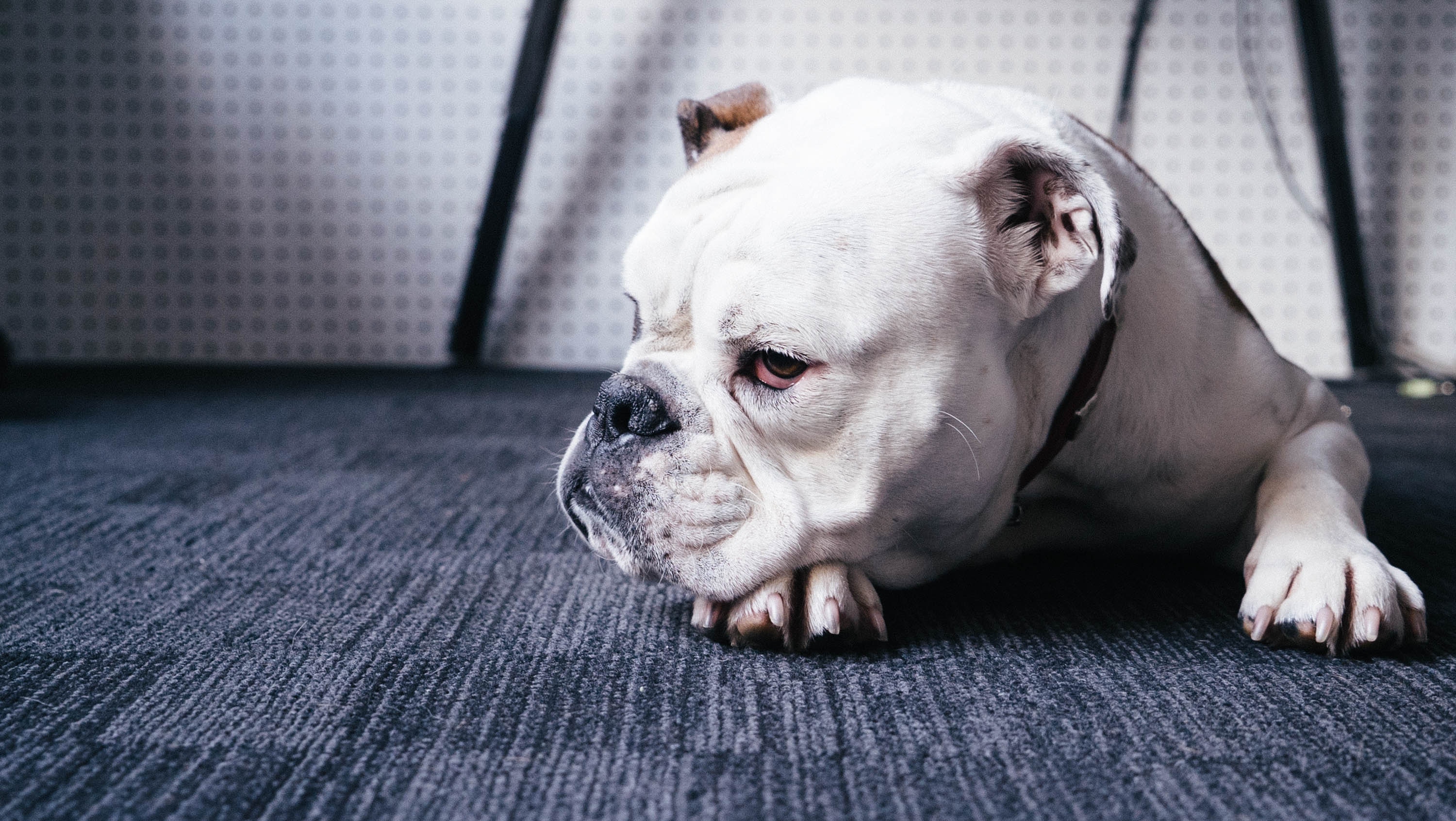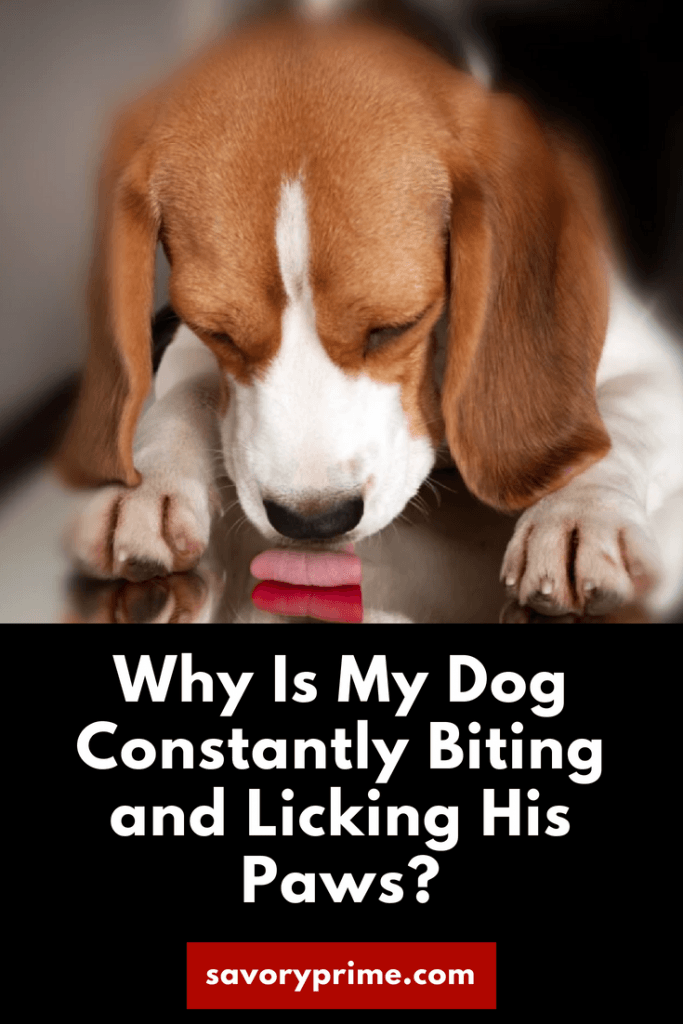Understanding And Addressing The Root Causes Of Your Dog Constantly Licking Paws At Night
Does your dog constantly licking paws at night keep you awake and worried? This behavior could be more than just a harmless habit. Persistent paw licking can indicate underlying health issues, psychological stress, or environmental factors affecting your pet's well-being. As a responsible pet owner, it’s crucial to identify the triggers and address them effectively to ensure your dog's comfort and health. By understanding the potential causes and implementing proactive solutions, you can provide your furry companion with the care it deserves.
Many dog owners encounter this issue at some point, but not everyone knows how to respond appropriately. Dogs often lick their paws for various reasons, ranging from physical discomfort to emotional distress. Whether it's due to allergies, injuries, or anxiety, the behavior can escalate if left unchecked. Ignoring the signs might lead to skin infections, hot spots, or further complications. This article aims to provide actionable insights and expert advice to help you tackle this common problem.
Through this guide, we’ll explore the possible causes of a dog constantly licking paws at night, the signs to watch out for, and practical solutions to alleviate the issue. By focusing on prevention, treatment, and long-term care, you’ll gain the tools necessary to improve your dog’s quality of life. Remember, every dog is unique, so tailoring your approach to your pet’s specific needs is key to success.
Read also:Tucson Medical Center Tucson Az Your Ultimate Guide To Exceptional Healthcare
Why Is My Dog Constantly Licking Paws at Night?
Understanding why your dog constantly licks its paws at night is the first step toward resolving the issue. Paw licking can stem from physical, emotional, or environmental factors. Below are some common reasons:
- Allergies: Dogs may develop sensitivities to food, pollen, or household products, causing itching and irritation.
- Injuries: Minor cuts, splinters, or abrasions can lead to persistent licking as dogs attempt to soothe the pain.
- Anxiety: Emotional stress or boredom can manifest in repetitive behaviors like paw licking.
- Infections: Bacterial or fungal infections might cause discomfort, prompting your dog to lick excessively.
Identifying the root cause is essential for effective treatment. If you're unsure what's driving the behavior, consulting a veterinarian can provide clarity and peace of mind.
Could Allergies Be the Culprit Behind Dog Constantly Licking Paws at Night?
Allergies are one of the leading causes of excessive paw licking in dogs. Food allergies, environmental triggers, or contact with irritants can all contribute to this behavior. If your dog constantly licks paws at night, consider these potential allergens:
- Grain-based foods
- Pollen or grass
- Cleaning chemicals
Switching to a hypoallergenic diet or reducing exposure to outdoor allergens might alleviate the problem. Additionally, regular paw cleaning after walks can prevent irritants from settling on your dog's paws.
Is Anxiety Causing My Dog to Constantly Lick Paws at Night?
Emotional stress and anxiety can lead to compulsive behaviors such as paw licking. Dogs may develop these habits due to changes in their environment, separation anxiety, or lack of stimulation. Recognizing the signs of anxiety is vital for addressing the issue effectively.
Signs of anxiety-related licking include:
Read also:Exploring The Flavorful World Of Hot Pot Modesto A Gastronomic Journey
- Increased restlessness
- Excessive panting
- Loss of appetite
Introducing calming aids, increasing physical activity, or consulting a pet behaviorist can help manage anxiety and reduce licking episodes.
How Can I Stop My Dog from Constantly Licking Paws at Night?
Stopping your dog from constantly licking paws at night requires a multifaceted approach. Combining medical treatment, environmental adjustments, and behavioral interventions can yield positive results. Here’s a breakdown of strategies to consider:
- Visit a veterinarian to rule out underlying health conditions.
- Implement a balanced diet tailored to your dog’s needs.
- Provide mental and physical stimulation through toys and walks.
Consistency and patience are key when addressing this behavior. Monitoring your dog’s progress and adjusting your methods as needed ensures long-term success.
What Are the Long-Term Effects of Dog Constantly Licking Paws at Night?
Prolonged paw licking can lead to serious consequences if not addressed promptly. Skin damage, infections, and hair loss are common outcomes of excessive licking. In severe cases, your dog might develop hot spots or open wounds, requiring medical intervention. Understanding the long-term effects can motivate you to take action before the issue escalates.
Can Medication Help with Dog Constantly Licking Paws at Night?
In some cases, medication may be necessary to treat the underlying cause of paw licking. Anti-inflammatory drugs, antihistamines, or antibiotics can alleviate symptoms associated with allergies or infections. Always consult your veterinarian before administering any medication to ensure safety and efficacy.
Preventing Dog Constantly Licking Paws at Night: Tips for Owners
Prevention is the best defense against excessive paw licking. By adopting proactive measures, you can minimize the likelihood of this behavior occurring. Below are some tips to help you protect your dog:
- Regularly inspect your dog’s paws for signs of injury or irritation.
- Use protective booties during walks to shield paws from irritants.
- Maintain a clean and allergen-free living environment.
Creating a safe and comfortable space for your dog can significantly reduce the risk of paw licking.
Conclusion: Taking Action for Your Dog's Well-Being
A dog constantly licking paws at night signals a need for attention and care. By investigating the causes, implementing solutions, and monitoring progress, you can address this issue effectively. Remember, your dog relies on you for guidance and support. With dedication and knowledge, you can ensure your furry friend enjoys a happy, healthy life free from discomfort.
Table of Contents
- Why Is My Dog Constantly Licking Paws at Night?
- Could Allergies Be the Culprit Behind Dog Constantly Licking Paws at Night?
- Is Anxiety Causing My Dog to Constantly Lick Paws at Night?
- How Can I Stop My Dog from Constantly Licking Paws at Night?
- What Are the Long-Term Effects of Dog Constantly Licking Paws at Night?
- Can Medication Help with Dog Constantly Licking Paws at Night?
- Preventing Dog Constantly Licking Paws at Night: Tips for Owners
- Conclusion: Taking Action for Your Dog's Well-Being


